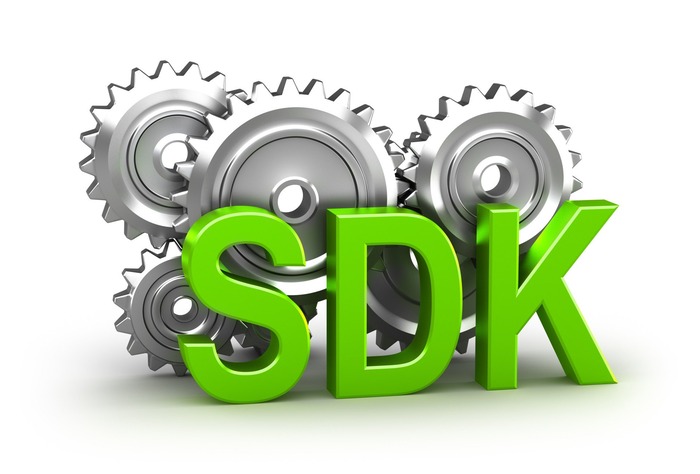Efficiency, automation, and accuracy are among the essentials a business needs to run seamlessly. However, your business will need a document conversion SDK to achieve all these.
For instance, a PDF to Office SDK like Apryse allows you as an organization to convert PDF files into editable Microsoft Office formats such as DOCX, XLSX, and PPTX while retaining the layout and format of the original documents.
But what exactly is a document conversion SDK? How do you know which document conversion SDK is ideal for your business?
This write-up will help you understand what a document conversion SDK is and the criteria for choosing the right one for your business.
Read on!
What is a Document Conversion SDK?
Document conversion involves transforming a document from one file format to another. The process requires a document conversion SDK, as stated earlier.
A Document Conversion SDK (Software Development Kit) refers to the tools and libraries that let software developers integrate document format capabilities into your applications. It comes with a comprehensive package of APIs, libraries, code samples, and libraries to facilitate this.
The solution facilitates the conversion of files from one format to another. For instance, you can use it to convert PDF to Excel, HTML, Word, PowerPoint, or image formats without the need for a third-party publication.
Criteria for Choosing the Right Document Conversion SDK
Since document conversion SDK is the tool you’ll need to incorporate document processing capabilities into your applications or workflows, you must choose a tool that’s ideal for your business. This is because every business has unique needs.
Below are the factors to consider when purchasing a document conversion SDK:
-
Supported File Formats
The document conversion SDK you choose must support the necessary inputs and output formats for your specific business needs. This includes formats like DOCX, PDF, TXT, HTM, JPG, PNG, and any other industry-specific formats.
-
Rendering Quality
Consider the level of accuracy, detail, and visual fidelity when purchasing a document conversion SDK. You want a tool that can accurately reproduce images, fonts, layout, and formatting so you can maintain the integrity of complex documents. The goal is to satisfy the user and facilitate seamless document processing and collaboration.
-
Security
You don’t want a tool that’ll pose potential security threats to your business. In that case, determine if the SDK source code is forked from a proprietary vendor or an open-source. Forked means creating a separate copy (fork) of an existing project or code name.
If forked, evaluate the number of vulnerabilities in that library and then determine the active development of the SDK and maintenance frequency.
-
Features
The more features and functionality a document conversion solution has, the easier it is to scale. Essentially, it should handle large document volumes efficiently, meaning it must support batch processing and multi-threading for high-speed conversions.
-
Integration and Compatibility
The solution you choose must be compatible with your existing software infrastructure. So, you should look for SDK availability in various programming languages. Reliable vendors offer ready-to-use code samples in various programming languages, such as Java, Python, and C#.
Why Businesses Need Document Conversion SDK?

The primary goal of document conversion is to manage documents. That said, below are reasons your business needs a document conversion SDK:
-
Improved Accessibility
A document conversion SDK relies on Optical Character Recognition (OCR) technology that facilitates the conversion of scanned images of text into searchable, editable text.
This allows different stakeholders in a business to access documents in their preferred formats, including PDFs for secure sharing and text-based documents for content editing.
-
Enhanced Searchability
As a business, you can store digitized documents in a centralized electronic repository to allow various stakeholders to retrieve those documents from anywhere as long as they have an internet connection. This ensures they don’t spend your valuable time manually searching through physical files- which is tedious.
-
Long-term Data Preservation
Formats like PDF/A ensure the data remains accessible and usable for years to come, regardless of future software changes and other technical changes. PDF/A is specifically designed for long-term archiving.
-
Streamlined Workflows
As discussed earlier, SDKs facilitate seamless integration with automation tools. Once the automation tool is in your DMS (Document Management System), you can automate processes such as document routing, data extraction, and approval workflows.
-
Compliance with Legal and Industry Standards
Today, almost every industry is governed by strict regulatory standards that stipulate how documents must be stored and shared. An excellent example is the ISO 27001 (International Standard for Information Security), which provides a framework for managing information security.
Reliable SDKs help protect document information because they enable secure document conversion and management.
Final Thought
When choosing the right document conversion SDK, you must understand your business needs first. Essentially, understanding your business needs involves determining the file formats you need to convert.
From there, you’ll determine the key features you need from a document conversion SDK to better serve your business.
In that case, you should consider factors such as supported file formats, integration capabilities, compliance, features, security, and rendering quality.

